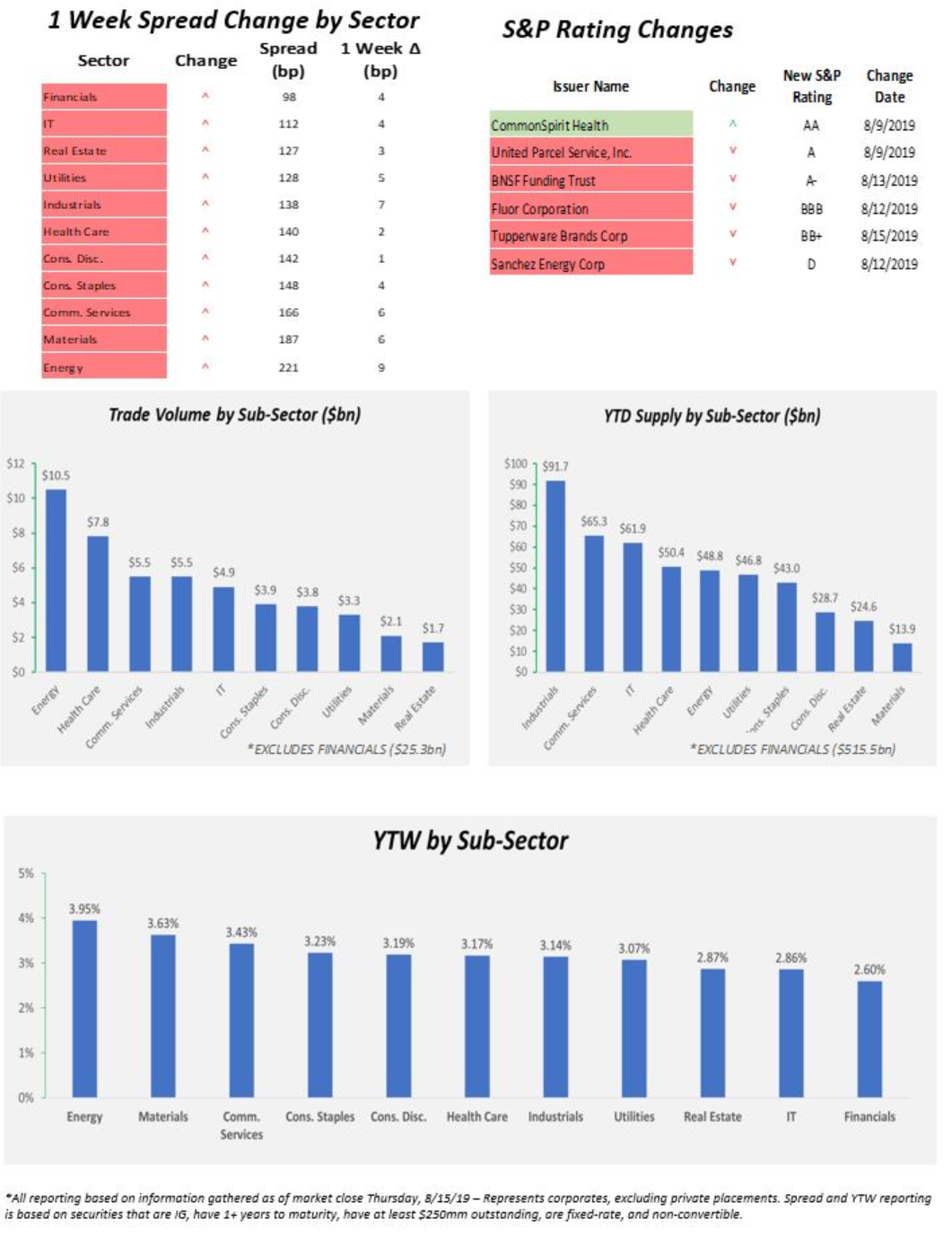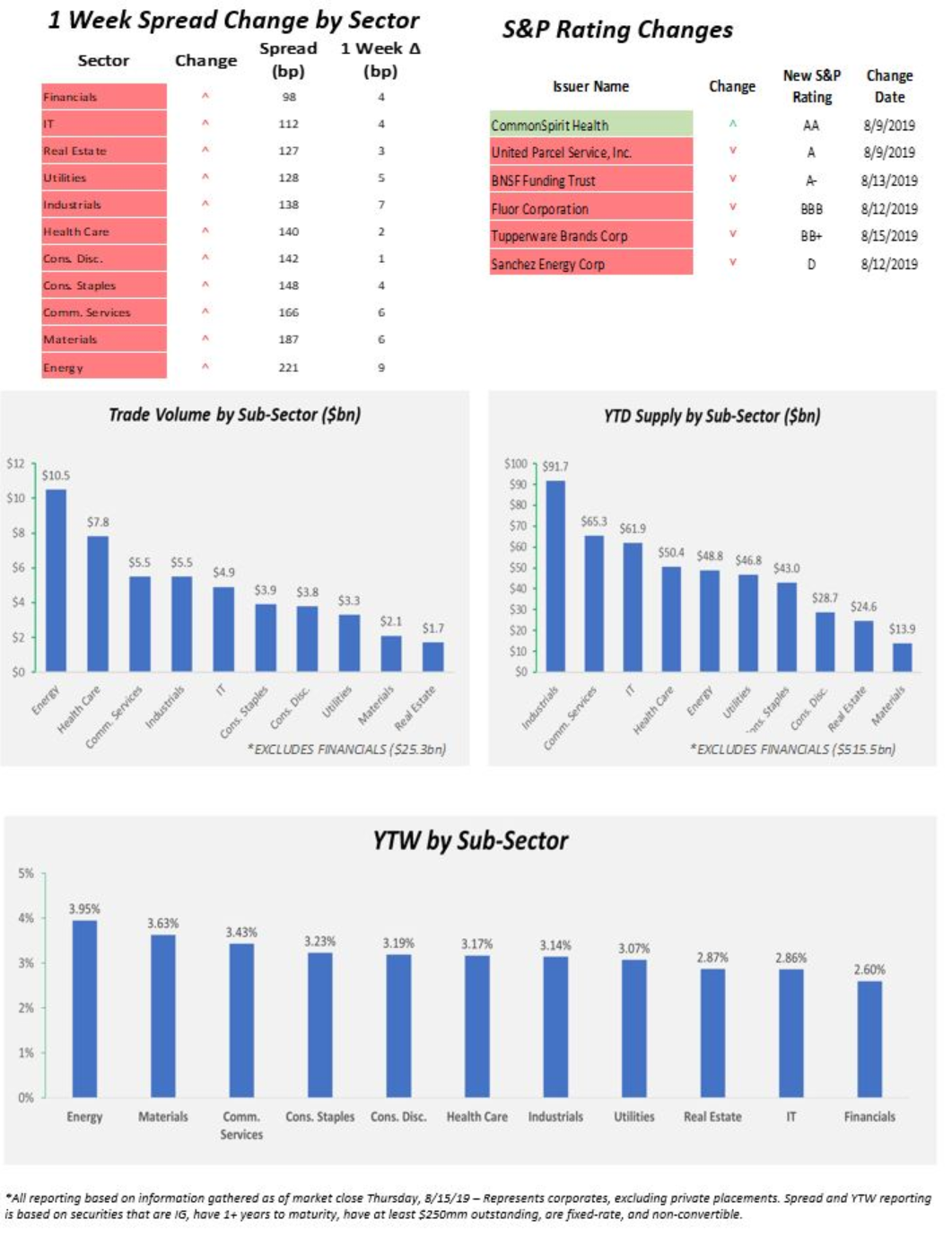Weekly Market Update 8.19.19

Last week, recession angst dominated the headlines, after the yield curves for 2- and 10-year Treasuries inverted for the first time in more than a decade.
But at the start of this week, domestic equities rebounded after US President Donald Trump indicated he was making headway on stalled trade talks with China, and news that the Department of Commerce would delay imposing restrictions on Chinese tech giant Huawei led to S&P 500 gains for the third consecutive trading day.
Yields on 10-year Treasuries increased by 6bp to 1.6% on Monday, and rates on the 30-year rebounded to 2.078%, up from last week’s all-time lows. Investor concerns were also assuaged as China and Germany signaled plans to implement fiscal stimulus packages to stave off an economic slump. The news was well received by analysts, and JP Morgan strategists predict the stimulus “outweighs worries about a slowdown,” according to Bloomberg.
Still, a new survey found that a third of economists predict the US will enter recession in 2020, and data from last week indicated that US mortgage debt hit a new record during 2Q19, surpassing 2008 levels seen at the height of the financial crisis.
All eyes are on the Fed again this week, as investors await a signal form Fed Chairman Jerome Powell, who will be giving remarks at the annual Economic Policy Symposium, this year being held in Jackson Hole, Wyoming. Although the market indicates a 74% chance of an additional rate cut in September, President Trump tweeted Monday morning that the Fed should cut rates by at least 100bp.
In the EM asset class, Argentina continued to take center stage. A shocking presidential primary election at the start of the month indicated that business-friendly incumbent Mauricio Macri is unlikely to secure a second term, triggering a sell-off of the country’s debt. After briefly rebounding last week, Argentine bonds suffered yet again after ratings agencies dealt a blow, downgrading the sovereign into deeper junk territory. Now, Argentine credit default swaps imply a nearly 80% chance of default by 2025.
In Asia, the trade war has thwarted demand for Asian junk bonds, as the US-China deadlock continues to spur a sell-off of the region’s sub-investment grade debt. In fact, Bloomberg reports, Asian junk bonds have lost money for three straight weeks as investors seek safe haven in more creditworthy assets. “The slowing growth environment is less favorable to high yield…as yield from high-quality assets continues to fall, investment-grade spreads will become more attractive, and the majority of investment-grade credits are less sensitive to economic downturn,” Schroder EM credit head said in a desk note, Bloomberg reported.







